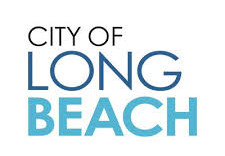 The Long Beach Department of Health and Human Services (Health Department) has confirmed the first presumptive case of monkeypox infection in Long Beach. Preliminary test results indicate that the person has tested positive for orthopoxvirus. Additional testing will be performed at the Centers for Disease Control (CDC) to confirm monkeypox. Given the positive test result, the Health Department is conducting an extensive contact investigation and offering vaccine to people who may have been exposed in order to prevent additional cases. The person is an adult Long Beach resident who has no recent travel history nor known contacts. They are symptomatic and recovering and isolating at home.
The Long Beach Department of Health and Human Services (Health Department) has confirmed the first presumptive case of monkeypox infection in Long Beach. Preliminary test results indicate that the person has tested positive for orthopoxvirus. Additional testing will be performed at the Centers for Disease Control (CDC) to confirm monkeypox. Given the positive test result, the Health Department is conducting an extensive contact investigation and offering vaccine to people who may have been exposed in order to prevent additional cases. The person is an adult Long Beach resident who has no recent travel history nor known contacts. They are symptomatic and recovering and isolating at home.
“We are taking monkeypox very seriously, and diligently working to vaccinate people who are at highest risk, understanding that the vaccine is currently in extremely limited supply,” said Mayor Robert Garcia.
Monkeypox is a disease that is part of the same family of viruses as smallpox. It is rarely fatal. The symptoms are similar to those of smallpox, but milder.
Symptoms of monkeypox typically include:
- Fever
- Headache
- Muscle aches and backache
- Swollen lymph nodes
- Chills, and
- Exhaustion
- A rash that can look like pimples or blisters that appears on the face, inside the mouth and on other parts of the body, like the hands, feet, chest, genitals or anus
Sometimes, people only experience a rash. The rash goes through different stages and often resolves in two to four weeks on its own. There are treatments available if needed, but they usually are not necessary. People with monkeypox are infectious and should isolate until the rash resolves.
People who have symptoms should call their healthcare provider; they will determine the need for testing. Those who do not have a healthcare provider and are experiencing symptoms can contact the City of Long Beach’s public health information line at 562.570.7907 for assistance with finding healthcare services.
“The risk of monkeypox is very low, but we are continuing our work and taking proactive measures to mitigate further spread,” said City Health Officer Dr. Anissa Davis. “This highlights why public health is important in preparing and empowering our community by offering awareness, education and prevention methods.”
People who think they have been exposed to monkeypox should contact their healthcare providers. This includes anyone who:
- Traveled to an area where monkeypox cases or exposures have been reported
- Had contact with a person who has a similar rash or who received a diagnosis of confirmed or suspected monkeypox
- Had contact with a dead or live wild animal or pet that is an African endemic species or used a product derived from such animals
There are steps people can take to protect themselves from monkeypox, including asking intimate and other sexual partners about symptoms, avoiding skin-to-skin or prolonged face-to-face contact with anyone who has symptoms, practicing safer sex (such as reducing the number of sexual partners), keeping hands clean and maintaining respiratory etiquette.
As of July 15, there have been more than 12,000 cases of monkeypox reported globally, including 1,814 cases in the U.S., 250 cases in California and 85 cases in Los Angeles County. While people of any gender and sexual orientation can acquire and spread monkeypox, most cases globally, in the U.S. and in California have been among men who have sex with men and transgender women. Healthcare providers are urged to consider monkeypox virus in patients with symptoms, regardless of whether they have travel or specific risk factors for monkeypox and regardless of gender and sexual orientation.
There are vaccines and antivirals that may be given to prevent illness or reduce disease severity, which include the JYNNEOS vaccine. Vaccines are currently in very limited supply, but more is expected in the coming weeks. In alignment with the Los Angeles County strategy of administering vaccine, the Health Department is currently offering the vaccine to people who:
- Have been exposed to someone with confirmed monkeypox and do not have symptoms
- People who have been exposed through that specific person will be contacted by the Health Department
- Patients with established care at specialty clinics (i.e., STD or HIV clinics) where there was high risk of exposure to someone with monkeypox
- Gay and bisexual men and transgender people with a diagnosis of rectal gonorrhea or early syphilis within the past three months and have a doctor’s referral or proof of a positive result
Higher risk activities include prolonged face to face contact (open mouthed kissing, close talking) and prolonged skin to skin contact, including shirtless dancing and sexual contact.
Vaccine will not help people who have or are already experiencing the symptoms of monkeypox.
Anyone who meets the above criteria should call the public health information line at 562.570.7907 for consultation or to make an appointment. Due to the extremely limited supply, we will not be able to offer vaccine to individuals who don’t meet the current vaccine eligibility criteria. Vaccine eligibility will continue to expand as vaccine supply increases in the coming weeks. The Health Department is working closely with healthcare providers in the community, including sexual health clinics and LGBTQ+ centers, to provide vaccine, education and guidance.
The Department encourages all residents to visit www.longbeach.gov/monkeypox for up-to-date facts on monkeypox, and to avoid misinformation. You can also follow updates, tips and notices on the Health Department’s social media pages @LBHealthDept and by following the hashtag #monkeypoxLB.





